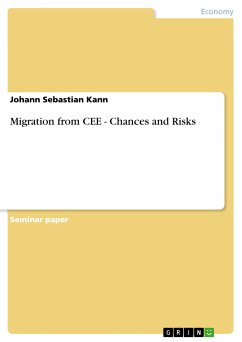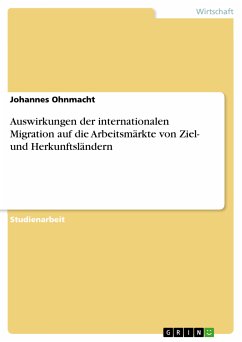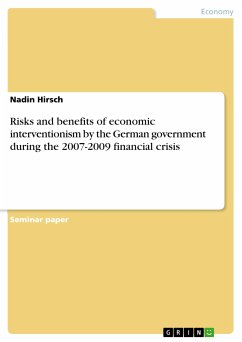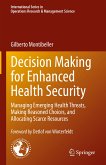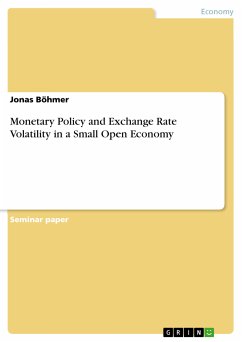Seminar paper from the year 2004 in the subject Business economics - Economic Policy, , course: WER Prize 2004, language: English, abstract: The debate on movement of people (migration) ranges, 10 days after the probably most important historical moment of European history in the 21st century, from positive to pessimistic. Migration undoubtedly presented a excellent opportunity for advancing human welfare, but some clashes resulting from economical, historical or political failures made weighing its costs and benefits very difficult: effects that look like “benefits” from a liberal economic point of view became “costs” when viewed from politics and with emotion in mind. First, the author will focus on major economic and political questions and perspectives that are currently clashing eachother in public debates.2 In fact the current debate on European Enlargement started already a couple of decades ago when people and populations moved throughout Europe from South-East Europe and Northern Africa to wealthy countries, such as Germany, France, UK or Scandinavia.3 Today, critics of EU enlargement mainly focus their arguments on the changes, problems and things that went wrong through immigration or due to false migration policy. 4 [...] 2 Should Turkey, Romania, Bulgaria, Croatia, or even Ukraine join the European Union in the future ? What is going to happen to people outside the European Union + other CEE that will look for job opportunities in our host countries ? 3 - With the result that some immigrants did not find a job, did not actively integrate themselves into their new local community or did not get integrated due to many reasons. 4 – Nevertheless debates about jobmarket problems resulting from (current and future) European Enlargement should not mixed up with integration problems resulting with immigrants from Non - EU countries.

